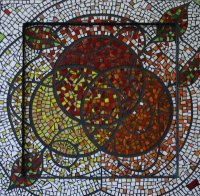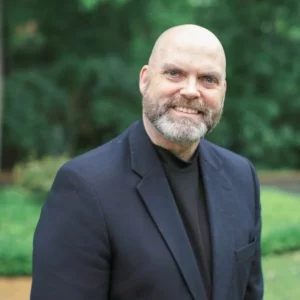“The desperate need today is not for a great number of intelligent people or gifted people, but for deep people.” – Richard Foster
The desperate need in the American Church today is for people who are fed up with the superficial, who are hungry to see the Kingdom of God come in all its glory and fullness. Are you among them?
1. Are you among the deep people?
Sherwood Eliot Wirt, author of The Inner Life of the Believer, writes, “Deep within every soul stands a meeting place, a castle, where the believer and God can commune. For some believers, the castle is filled with warmth, joy and laughter. For others, it is empty, lonely and virtually non-existent. The choice is yours: Cultivate a rich, fruitful inner life with the Lord or let it remain stagnant and barren.”
Wirt’s challenge is to go where God is, to get in line with a God who has all the power in the universe at his command. God deserves that attention precisely because he is God — bigger than everything we can see and everything we know is out there that we can’t see and everything that is there that we aren’t even sure about. He wants us — men and women — to be this close, this trusting, this much under the care and love and grace of that Presence. This is what it means to go deep.
2. Do you thirst for time alone with God?
There is a place in the book of Luke where Jesus says building a relationship with God is like building a foundation for a house. He says a good builder will dig deep and set the foundation into rock, so it can withstand storms and floods. And then he follows that little object lesson with a question, “Why do you call me Lord, Lord and do not do what I tell you?” (Luke 6:46)
It is almost a spiritual sucker punch. Jesus makes a rational point, then brings it down to our reality. Why don’t we build our relationship with him on something more solid than thin air, promises, good intentions or flat ignorance? We talk about God without talking to him (“If only God would show me what to do.” Or, “I don’t see what God is doing in my life right now and I’m so confused.” Or, “I feel like my prayers are not going any higher than the ceiling.” Or, “God just feels so distant and I feel like I don’t know who he is or who I am or how to do this Christian thing.”); meanwhile, God is right here.
(Side note: Third-person language about God is just one step removed from no-person language, which is actually called worry. First-person language is called prayer.)
Wally Armstrong, author of Practicing the Presence of Jesus, says, “The amazing truth is that Jesus is standing right beside each one of us, offering us the life-changing gift of his friendship and the promise of transformation from the inside out.” Hunger for time alone with God acknowledges his presence in a deeper, more real way, and trusts him to show up.
3. Do you use knowledge to keep you at a distance from the heart of God?
Dallas Willard defines discipleship as being with Jesus learning to be like him. It is both things. It is being with him and learning from him. Not just about him but from him. Having great theology and knowing the Bible and knowing the character of God are admirable goals (most of my work is around these very things)Å but at the end of the day, what most affects us and what is most valuable is knowing God himself. Not just knowing about him, but knowing him. Isn’t this what destroyed the Pharisees spiritually? They were unable — for their obsession with proving Jesus guilty of rule-breaking — to absorb the miracles and awaken to the supernatural presence in their midst. Can you imagine the hardness of heart that can have Jesus right there … and still miss him?
We too easily forget the intimacy to which the Father calls us, and the daily guidance he promises to give through deserts and enemy territory. Our Father longs to be present with us, longs to be Lord over us, longs to be what we need him to be.
4. Are you avoiding God’s influence in some areas of your life?
 This piece of art hangs in our foyer at Mosaic. It tells our story and proclaims our theology. The circles are about community. Notice there are vines running through the circles with thorns on the vines. The thorns represent wounds, and remind us that the place for wounds is inside the church. By the time those vines reach beyond the circles, they are sprouting leaves. This is a beautiful vision of what repentance, renewal and recovery can be.
This piece of art hangs in our foyer at Mosaic. It tells our story and proclaims our theology. The circles are about community. Notice there are vines running through the circles with thorns on the vines. The thorns represent wounds, and remind us that the place for wounds is inside the church. By the time those vines reach beyond the circles, they are sprouting leaves. This is a beautiful vision of what repentance, renewal and recovery can be.
The place for wounds is inside the community. If we as a Church are going to build a new society, I believe it begins where Jesus says it begins. Repent and believe. Or in other words, bring your wounds into the community of faith.
The truth is: there is no shame in Christ. When we find the courage and conviction to speak aloud the names of our demons, we change the spiritual climate. The enemy no longer holds power over us. Avoidance is a lack of trust in the power of the cross; repentance is claiming it.
Are you swimming in the shallow end of faith, or heading into the deep? How would it change your life today if you committed to practicing the intimate, constant presence of the Father?







